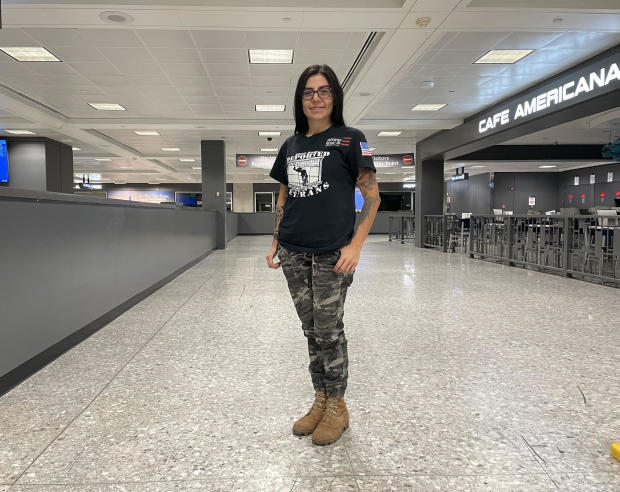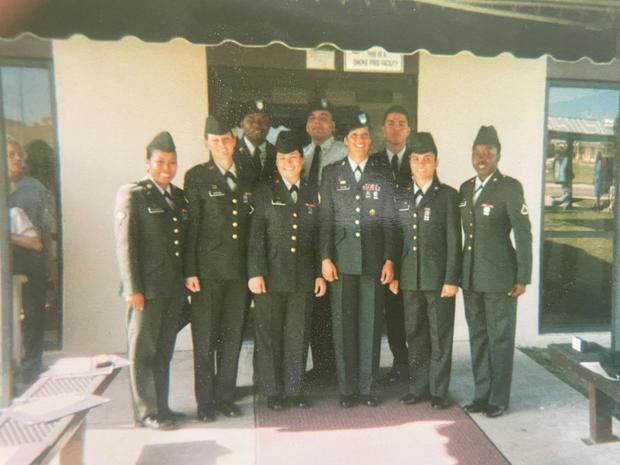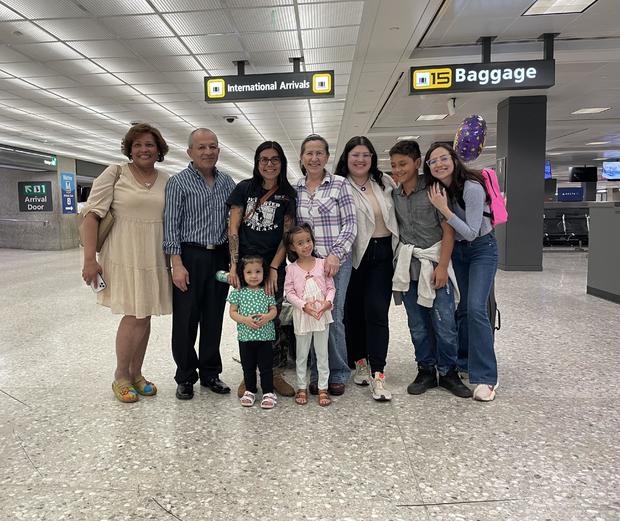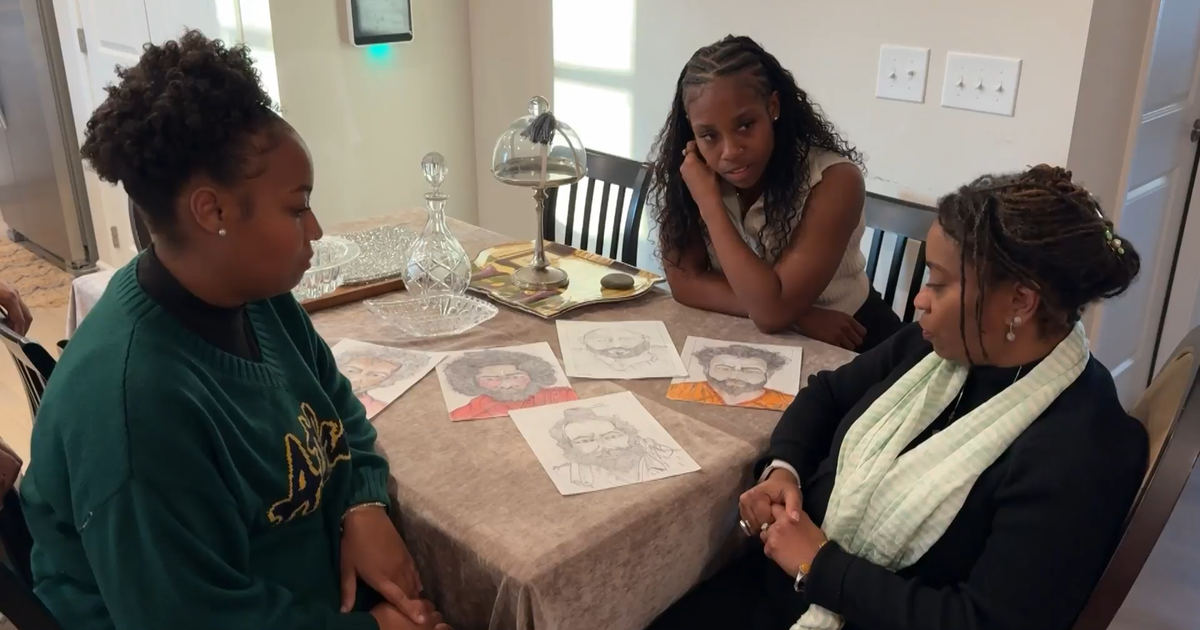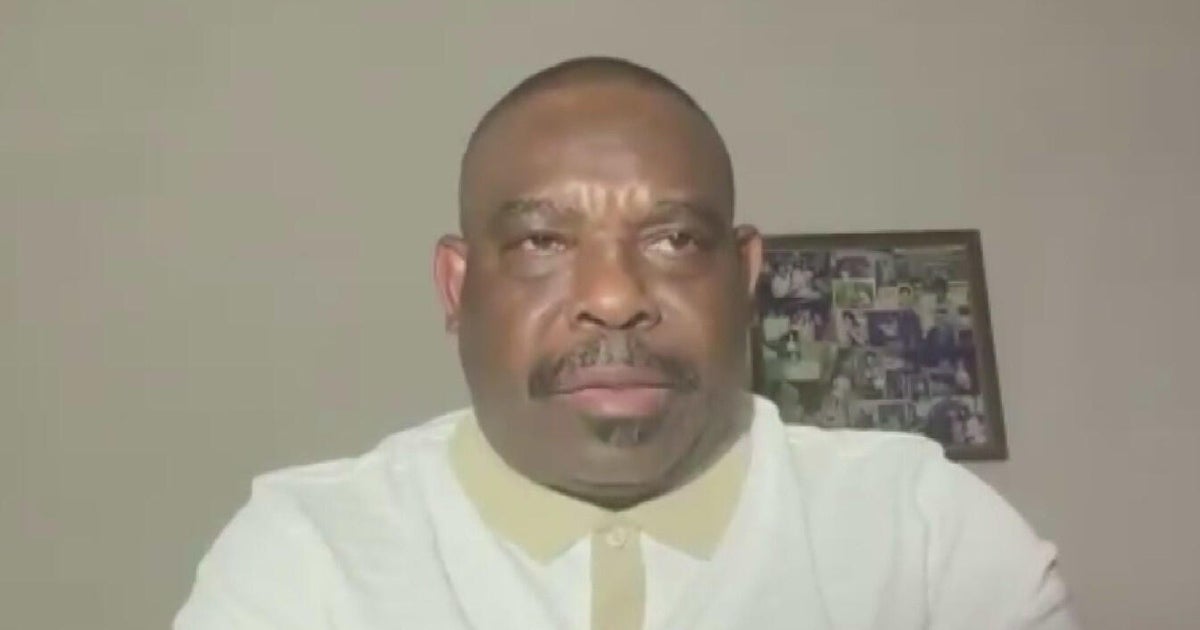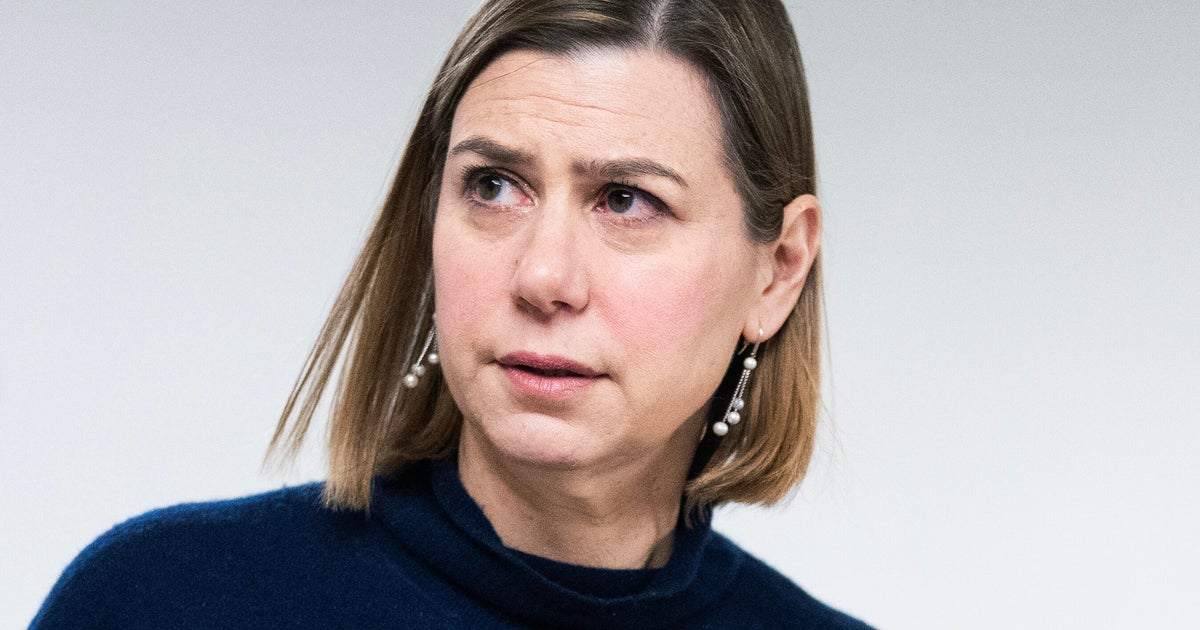Veteran returns to the U.S. after 14-year exile under Biden effort to rectify "unjust" deportations
Dulles, Va. — When she was deported from the U.S. in shackles, Laura Meza was a 28-year-old single mother and U.S. Army veteran struggling with post-traumatic stress disorder, a crippling drug addiction and deep regrets over a series of mistakes that had led to her banishment.
Earlier this week, Meza set foot on American soil for the first time in over 14 years as a 42-year-old grandmother who, while still dealing with PTSD, had turned her life around and earned a rare opportunity to return to the country she served in uniform during the war in Iraq.
"I'm still walking on clouds. This is like a dream. This is a dream. I've been praying for this for 16 years," Meza told CBS News after landing at Dulles International Airport from Costa Rica late Sunday night, referring to her two years in jail and immigration detention and 14 years outside the U.S.
Donning a black "deported veterans" shirt with an American flag, fatigues and boots, Meza embraced her family after she and her 12-year-old Costa Rican-born son, Jaden, were released from Customs and Border Protection custody just after 2 a.m on Monday.
She met her 2-year-old granddaughter for the first time. She hugged her daughter and sister, who were 9 and 18 when she was deported from the U.S. Meza's father, stepmother and niece were also there to welcome her with flowers.
But the longest hug was with her mother, Liddy Alvarado, 64, who said she had cried and prayed every day during Meza's exile. Alvarado had waited hours at the airport, deep into the early morning on Monday, to welcome her daughter. But she said the inconvenience did not compare to the 14-year wait for Meza's return.
"I can't describe my happiness and how I feel," Alvarado said.
Meza, the only known female deported veteran, said she had resigned herself to the idea that she would never see her family in the U.S. again after her deportation: "I didn't want to die out there. I'd rather die over here where all my family is."
Meza's unlikely return was made possible by an unprecedented Biden administration effort to rectify deportations that it deems were "unjust" by allowing some immigrants who were deported after serving in the military to come back to the U.S.
Since the summer of 2021, the Department of Homeland Security program, known as the Immigrant Military Members and Veterans Initiative, has allowed 62 deported veterans and nine of their family members to enter the U.S. legally to reunite with their families, access Veteran Affairs benefits, explore paths to American citizenship and restart their lives, according to government figures.
"We are profoundly grateful for the service and sacrifice of military service members, veterans, and their families," Secretary of Homeland Security Alejandro Mayorkas said in a statement to CBS News. "We are committed to helping veterans access the benefits and services to which they may be entitled."
"A profound punishment"
Once a little-known symptom of complicated and unforgiving U.S. immigration laws, the issue of deported veterans has gained significant national attention in recent years.
In the vast majority of cases, deported veterans enlisted and served in the U.S. military as permanent legal residents and were expelled from the country after being convicted of crimes that made them subject to deportation.
Under strict changes made to U.S. immigration laws in the 1990s, legal permanent residents can be stripped of their green cards and deported if they are convicted of certain crimes, which can range from violent felonies like murder and assault, to nonviolent drug-related offenses and even misdemeanors under state law.
Those subject to these laws serve their criminal sentences in state or federal prison before being detained by U.S. Immigration and Customs Enforcement (ICE) and deported to their countries of birth, in what advocates for deported veterans say is an unfair double punishment since it only applies to noncitizens.
Many deported veterans like Meza have attributed their crimes to PTSD, which affects those who served in the military at higher rates than the general public.
Meza immigrated to the U.S. from San José, Costa Rica, in 1985, when she was 5. She grew up in Maryland and graduated from a high school in Washington, D.C., that awarded her several certificates for her leadership and academic performance. A letter from an official at the high school highlighted that Meza's studies had been interrupted by her need to work full-time, and that she had also graduated as a teenage mom to her daughter, Jasmine.
In 2001, Meza became a permanent U.S. resident. Two years later, she enlisted in the U.S. Army. It was an opportunity to serve the country she loved, but the experience also ushered her life's darkest moments.
While stationed in Germany, Meza said she was raped by another soldier. She did not report it, fearing retaliation. She was then deployed to Iraq to support the 2003 invasion. There, she witnessed the horrors of war, including bomb attacks that killed some of her fellow soldiers.
Meza came back to the U.S. as a different person. In 2004, she was honorably discharged, according to a document that cited a temporary disability. Meza was suffering from an undiagnosed PTSD and began to self-medicate with drugs. In a 2005 Baltimore police report, she reported being raped a second time.
Meza's legal troubles started soon after. Following several arrests, Meza in 2007 pleaded guilty to attempted robbery and possession of marijuana with intent to distribute in Washington, D.C. She received a 30-day prison sentence for the marijuana offense, as well as a 2-year suspended sentence for the attempted robbery conviction from a judge who also ordered her to get drug abuse treatment during her probation.
But after Meza served her time in prison, she was arrested by ICE, which detained her for over a year before deporting her to Costa Rica in January 2009.
Lindsay Toczylowski, the immigration lawyer who helped Meza return to America, said her client would've been able to get treatment and remain with her family in the U.S. after fulfilling her criminal sentence had she been an American citizen.
"Instead, she was separated from her family, from her child. She missed the entire childhood of her daughter and was separated from her family for 14 years. That is a profound punishment," said Toczylowski, who runs the Immigrant Defenders Law Center, a California-based nonprofit.
"Very challenging" cases
The program that allowed Meza to come back to the U.S. is a small government operation run by a handful of U.S. Citizenship and Immigration Services (USCIS) adjudicators, two ICE agents and a CBP official.
Together they decide whether a deported veteran should be given a second chance to live in the U.S. The team considers how long veterans have been exiled, the severity of the crimes that led to their deportations, rehabilitation efforts, their eligibility to regain permanent legal status, the need for mental health services and other factors, such as family ties to the U.S.
"We've been able to look at their files, look at their history, and make sure that we're looking at that case really holistically," a senior DHS official told CBS News, noting that cases "can be very challenging."
Since the program's inception, DHS has received 117 requests from deported veterans seeking to return to the U.S., according to department data shared with CBS News. In addition to the 71 approvals, the program has denied 22 applications. The DHS official said grounds for a denial could be a determination that the deported veteran poses a public safety or national security risk to the U.S.
The U.S. government has no official accounting of how many deported veterans remain overseas, since it failed to record these cases for many years. However, the number is believed to be at least in the hundreds. The Biden administration program has already received over 300 inquiries from potential deported veterans.
Even those deported veterans who have been allowed back into the U.S. face an uncertain path to remain in the country legally.
Those approved under the Biden administration program are allowed to enter the U.S. on humanitarian grounds under an immigration authority known as parole. But parole only allows them to live and work in the U.S. for one-year increments. It does not place them on a path to permanent residency or citizenship.
Some deported veterans who return to the U.S. could ask for their green cards to be reinstated in immigration court, though that would require them to have the relevant convictions vacated or show that they're no longer deportable because of changes to immigration law.
Others may be eligible to gain U.S. citizenship if they served in the military during a period of hostilities, such as the Vietnam War or anytime after the 9/11 terrorist attacks. But veterans who have certain criminal convictions are ineligible for this naturalization process due to a "good moral character" requirement.
So far, 23 deported veterans have secured American citizenship since returning to the U.S., and another five have regained their permanent residency, according to unpublished DHS figures.
As an Iraq War veteran, Meza would be eligible for a special citizenship process, but for her criminal convictions. Toczylowski, her attorney, said she's working on enlisting the help of a lawyer in Washington who can convince prosecutors there to downgrade Meza's convictions or reduce her sentence, so the crimes no longer bar her from securing citizenship.
The other option would be for Meza to obtain a pardon, Toczylowski said. But Meza would need a presidential pardon, since local crimes in D.C. are prosecuted by federal prosecutors. Governors have pardoned deported veterans, but Toczylowski said she's not aware of a president ever issuing such a pardon.
"A second opportunity"
Despite her uncertain legal situation, Meza is thankful to be back in the U.S., which she considers her home.
She is well-aware of her lingering PTSD symptoms and mental health needs, and is planning to get treatment through the VA. She also knows she's a different person than the 28-year-old who was deported in 2009.
In Costa Rica, Meza raised her son Jaden and encouraged him to play sports and practice martial arts. She also taught English at a local school and hopes to continue working with students in the U.S. Going to college and earning a degree is also on her mind. Jaden, for his part, is looking forward to studying and playing soccer at an American school.
"I'm going to take this like a second opportunity. I'm definitely going to take advantage of it. I'm not going to, you know, mess up," Meza said.
Despite the struggles that followed her time in the military, Meza said she's proud to have served in uniform — and she knows her service played a key role in her return.
"I didn't like the war. I don't think anybody really likes the war. That was awful. But yeah, all in all, the military is very, very, very challenging. And it makes you very proud," she said.
Alvarado, Meza's mother, said she's eager to make up for the 14 years of lost time with her daughter.
"The most important thing I think is (to) give her all the love that I can, that is in my heart," Alvarado said.

